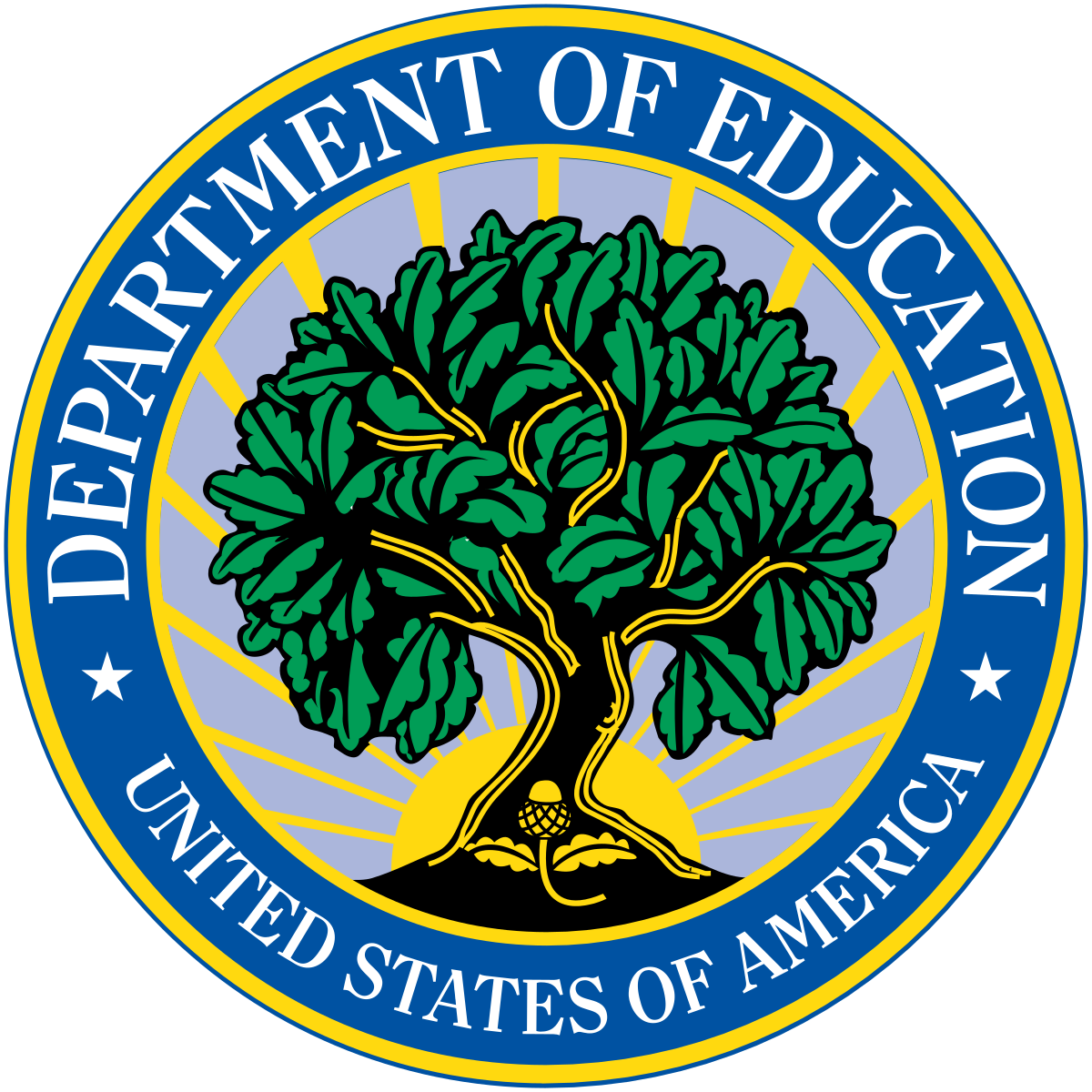 What’s Happening in Washington, D.C. What’s Happening in Washington, D.C.
Congress returned to Washington, D.C this week after recess. Work continues in the House and Senate to finalize appropriations for Fiscal Year 2022. Congress has passed short-term continuing resolutions continuing the prior years funding at the same levels. The current continuing resolution runs through February 18, 2022. Continuing resolutions continue annual program funding that is separate from the emergency funding. Funding for AUCD programs and most programs that impact people with disabilities is included in the Labor, Health, Human Services and Related Agencies (LHHS) bill (HR. 4502). The House passed the LHHS bill on July 29, 2021. The Senate LHHS bill (S. 3062) is still in draft form and the Senate is working to come to agreement on numbers to finish the bills. Plain language:
- Congress is working on a number of important issues that impact people with disabilities including funding for a range of programs.
What it means to you:
- It is important that programs with and for people with disabilities receive increased funding. Many AUCD programs get their funding from the federal appropriations process.
- Appropriations is the act of setting aside money for a specific program from the federal budget. These programs are critical to ensuring people with disabilities receive a quality education, can be employed and received services and supports in the community.
Action steps:
- Call your members of Congress and educate them about the importance of funding programs for persons with disabilities.
- Join the HCBS Day of Action on Tuesday, February 1st. Here is the HCBS Day of Action Social Media Toolkit for sample tweets and posts by the Autistic Self Advocacy Network (ASAN), The Arc, Be a Hero, National Domestic Workers Alliance (NDWA), and Justice in Aging.
 Released Discussion Draft of the Prepare for and Respond to Existing Viruses, Emerging New Threats, and Pandemics Act (PREVENT Pandemics Act) Released Discussion Draft of the Prepare for and Respond to Existing Viruses, Emerging New Threats, and Pandemics Act (PREVENT Pandemics Act)On Tuesday, January 25, 2022, a discussion draft of the Prepare for and Respond to Existing Viruses, Emerging New Threats, and Pandemics Act (PREVENT Pandemics Act) has been released by Senate Health, Education, Labor, and Pensions (HELP) Committee Chair, Senator Patty Murray (D-WA), and Ranking Member, Senator Richard Burr (R-NC).
The PREVENT Pandemics Act works to create a stronger public health and medical preparedness and response system. Some key components include improving the strategy and coordination among our public health preparedness agencies; strengthening supply chain and government stockpiles of medical products, such as masks, drugs, vaccines, and tests; responding to disparities that make public health emergencies harder on at-risk populations and communities; improving public health communication and address misinformation; and other similar public health emergency preparedness concerns.
Plain language:
- The COVID-19 pandemic has been a challenging and difficult time. We need new policies that make sure the U.S. is prepared for all future public health emergencies.
What this means for us:
- There is work being done to improve our public health emergency preparedness system. The PREVENT Pandemics Act applies lessons learned during the pandemic and looks to address the need for better policies to keep people safe and healthy.
Action steps:
- Read the discussion draft of the PREVENT Pandemics Act:
- Submit feedback on the discussion draft to [email protected] by Friday, February 4, 2022.
Distributing At-Home, Rapid COVID-19 Tests to Americans for Free
The Biden administration bought one million at-home, rapid COVID-19 tests to send to U.S. households to make free COVID-19 tests available.
Beginning on Wednesday, January 19, 2022, each U.S. residential address can order four at-home, rapid COVID-19 tests for free. The tests will typically ship within 7-12 days of ordering via COVIDtests.gov or calling 800-232-0233.
Also, as of January 15, 2022, people with private health insurance can get up to eight free, at-home rapid COVID-19 tests for each covered individual each month.
Plain language:
- Rapid COVID-19 tests can help you know if you have COVID. There are new options to get free tests.
What this means for you:
- Testing for COVID-19 remains critical to make sure you and the people around you stay healthy. Free, at-home rapid tests are now available.
 U.S. Department of Education Publishes 2021 Annual Report to Congress on the Implementation of the Individuals with Disabilities Education Act (IDEA) U.S. Department of Education Publishes 2021 Annual Report to Congress on the Implementation of the Individuals with Disabilities Education Act (IDEA)
The report provides detailed, evidence-based findings on the progress made toward a free and appropriate public education (FAPE) for all children with disabilities and effective early intervention services to infants and toddlers with disabilities.
Plain language:
- All students with disabilities have the right to receive a quality education. The annual report provides data showing ED’s progress each year.
What this means for you:
- The annual report provides you information on the progress made to implement IDEA. The data collection helps provide recommendations on how to make sure students with disabilities receive FAPE and where improvements are needed across states and nationally.
Action steps:
 All State Education Agency (SEA) Receive Approval of Their American Rescue Plan Elementary and Secondary School Emergency Relief Plan All State Education Agency (SEA) Receive Approval of Their American Rescue Plan Elementary and Secondary School Emergency Relief PlanOn Tuesday, January 18, 2022, the U.S. Department of Education (ED) announced that every state education agency (SEA) received approval of their American Rescue Plan Elementary and Secondary School Emergency Relief (ARP ESSER) plan before the end of 2021. In total, the ED has distributed $122 billion of ARP ESSER funds to all 50 states, Washington, D.C., and Puerto Rico.
This funding helps states to keep schools open for learning in a safe manner during the pandemic This funding also includes the distribution of COVID-19 tests every month and the implementation of screening testing and test-to-stay programs.
Plain language:
- Schools are receiving additional funding to keep students and school personnel safe and healthy during the COVID-19 public health emergency.
What this means for you:
- Schools have more funding to have stronger COVID-19 precautions and protections in place, including increased COVID-19 testing.
 U.S. Department of Education Civil Rights Data Collection Public Comment Period U.S. Department of Education Civil Rights Data Collection Public Comment PeriodThe U.S. Department of Education (ED) has collected civil rights data about the nation's public schools via the Civil Rights Data Collection (CRDC) since 1968. The CRDC collects vital data related to the civil rights laws’ requirements that public local educational agencies (LEAs) and elementary and secondary schools provide equal educational opportunity. Public comments help ED to improve the types of data collected as part of the CRDC.
Public comments are being accepted until Friday, February 11, 2022. Comments can be submitted through regulations.gov.
ED wrote in their public notice that it is especially interested in public comment addressing the following issues:
- Is this collection necessary to the proper functions of the Department?
- Will this information be processed and used in a timely manner?
- Is the estimate of burden accurate?
- How might the Department enhance the quality, utility, and clarity of the information to be collected?
- How might the Department minimize the burden of this collection on the respondents, including through the use of information technology?
Plain language:
- Stakeholders have a chance for people to say if they agree or disagree with what information is being collected for the CRDC.
What this means for us:
- Stakeholders have the opportunity to make sure that the CRDC collects data on the experiences and outcomes of students with disabilities in public schools.
Action steps:
- Review the notice and supporting documents (under Enhanced Comments on the right had toolbar).
- Submit comments at regulations.gov. by Friday, February 11, 2022.
- Once you are ready to make your comment, log onto www.regulations. gov/. Search for the Docket ID number of ED-2021-SCC-0158 of this public notice.
- To submit your comment, click on the icon at the top or far right of the screen. You will be required to provide your first and last name, city, state and country, but all other requested information is optional.
- Type your comment in the box provided and add any attachments you feel necessary. Regulations.gov will support all common file types.
- After successfully submitting your comment, you will receive a comment tracking number that will allow you to track your comment once it has been seen and posted.
 Safety for Students in Schools Safety for Students in Schools
All students, including students with disabilities, have the right to be safe in school and receive a quality education.
AUCD is supporting the following bills:
- The Counseling Not Criminalization in Schools Act (S. 2125, H.R. 4011): Prohibits the use of federal funds to support the hiring, recruitment, and placement of police officers on K-12 school campuses. Instead, it establishes a $5 billion grant program to invest in school districts that remove law enforcement, so that schools can provide person-centered trained personnel and trauma-informed services to support the learning environment for children.
- The Keeping All Students Safe Act (S. 1858, H.R. 3474): Prohibits the use of federal funds to seclude a child: using mechanical restraint, chemical restraint, or prone, supine, or physical restraint that restricts breathing, stops blood flow to the brain, or is life threatening. The bill also provides grants to invest in professional development, training, and certification for evidence-based school climate policies and procedures for school professionals.
- The Protecting Our Students in Schools Act (S. 2029, H.R. 3836): Prohibits the practice of corporal punishment in any school that receives federal funding. The bill also establishes a series of enforcement protections for students and families in addition to creating a federal grant program to assist states and school districts in improving the culture of schools.
- The Safe Schools Improvement Act of 2021 (S. 2410, H.R. 4402): Establishes federal standards to protect every student from bullying and harassment in K-12 schools, regardless of actual or perceived race, color, national origin, sex, sexual orientation, gender identity, disability, or religion.
- The Ending Punitive, Unfair, School-based Harm that is Overt and Unresponsive to Trauma (PUSHOUT) Act of 2021 (H.R. 2248): Prevents the criminalization and pushout of students from school, especially Black and Brown girls. It instead creates a grant program for school districts and non-profit organizations to reduce exclusionary discipline practices, such as the suspension and expulsion of students. The bill also requires the Department of Education to collect discipline data annually under the Civil Rights Data Collection (CRDC) and establishes a Federal Interagency Taskforce to End School Pushout.
Plain language:
- Schools should be safe for all students so they can learn. If passed, these five bills would help to keep students safe and ensure they can learn.
What this means for you:
- There are trauma-informed, person-centered approaches to school climate that can help to ensure the safety of students.
Action steps:
- Read the letter about the package of bills.
- Call and educate your Members of Congress about the impact these bills will have on ensuring safe schools for students with disabilities. You can reach your Members of Congress by calling the Capitol Switchboard at 202-224-3121.
 National Disability Rights Network Published Report on How Schools Are Illegally Removing Students with Disabilities National Disability Rights Network Published Report on How Schools Are Illegally Removing Students with DisabilitiesOn January 25, 2022, the National Disability Rights Network (NDRN) published a report: “Out from the Shadows: Informal Removal of Children with Disabilities from Public Schools.” The report provides data and stories on how students with disabilities are being informally removed from the classroom through illegal practices.
The Individuals with Disabilities Education Act (IDEA) mandates that students with disabilities receive the necessary behavioral services and supports that they need and that they receive at least the same, high-quality education as other students. The report shares evidence of illegal “informal removals” and makes recommendations to address these practices.
Plain language:
- Students with disabilities have the right to high-quality education. Schools have been illegally removing students with disabilities from their classrooms. This report provides more information on the issue.
What does this mean for you:
- Work is being done to address the practice of illegally removing students with disabilities from their classrooms.
 Office of Disability Employment Policy (ODEP) and Employee Benefits Security Administration (EBSA) Released a Financial Toolkit for People with Disabilities in Response to the COVID-19 Pandemic Office of Disability Employment Policy (ODEP) and Employee Benefits Security Administration (EBSA) Released a Financial Toolkit for People with Disabilities in Response to the COVID-19 Pandemic
In response to the financial disruptions throughout the COVID-19 pandemic, the U.S. Department of Labor’s Office of Disability Employment Policy (ODEP) and Employee Benefits Security Administration (EBSA) published a Financial Toolkit specifically for people with disabilities to help people with disabilities to navigate employment-related decisions and accomplish their financial goals.
The Financial Toolkit has frequently asked questions and answers, tools, resources for the following topics:
Plain Language:
- The toolkit provides help to people with disabilities to manage their money.
What this means for you:
- This Financial Toolkit has five different fact sheets to give you information to plan your financial future.
Action steps:
 Disability Policy Seminar 2022 Disability Policy Seminar 2022
We’re getting excited for this year’s Disability Policy Seminar (DPS)! DPS is a three-day event, where passionate advocates, self-advocates, experts, and professionals in the field come together and learn about key issues that affect them. DPS will take place from March 28-30, 2022. This year, there options to participate either virtually or in-person in Washington, D.C. Registration costs will be the same for both options. Registration is open.
Plain language:
- Disability Policy Seminar is a three-day event, where disability advocates and professionals can learn more about the issues that impact them. It takes place every year.
What this means for you:
- This year’s Disability Policy Seminar will have virtual and in-person options, so all participants can feel safe.
Action steps:
- Save the date! DPS will be from March 28-30, 2022. The AUCD Pre-DPS event will be held on the afternoon of Wednesday, March 23, 2022.
- Start talking to your centers and colleagues if you have an interest in attending virtually or in-person.
- Register and read the other updates.
 Tuesdays with Liz: Disability Policy for All Tuesdays with Liz: Disability Policy for All
Did you know that Liz has a YouTube Channel?
'Tuesdays with Liz' is a weekly video series highlighting current issues in disability policy. It is hosted by Liz Weintraub, a long-time disability advocate, and produced by AUCD.
You can help spread her message by:
|
